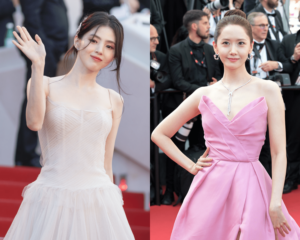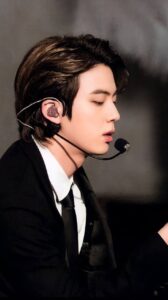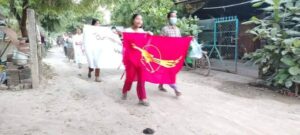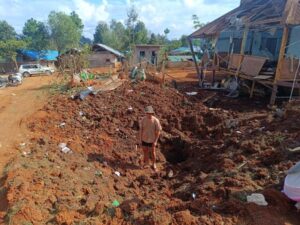
The culmination of a trilogy
The latest album D-DAY
-What’s the meaning behind the album ‘D-DAY’?
Solo Album ‘D-DAY’ completes the Agust D trilogy (the Agust D mixtape from 2016, and the D-2 mixtape from 2020). It’s like the second chapter of my story as Min Yunki.
-The title track “Haegeum” is about liberation. What does liberation mean to you?
I think I have experienced, seen, and heard a lot [in my life]. Just as essential as relaxing, I think the most important thing in life is to liberate your mind so that it’s free of negative emotions. I felt that way especially while working on this album.
-You featured RM on the last album “D-2” and this time you’re featuring J-HOPE. How did the collaboration come about behind the scenes?
We needed a rapper to feature on this album as well, so we looked for the most trustworthy rapper we could find. I’ve been working with J-HOPE on making music for over 10 years, and so we decided to entrust it to him.
-You also collaborated with Ryuichi Sakamoto and met him when you visited Japan.
He had been doing music for such a long time, and was someone I hugely admired and looked up to, so it was an honor just to meet him. He gave me a lot of advice as a mentor, and the conversations we had together were a great help in finishing the album.
-You experimented with drill music on D-DAY. Are there any particular sounds you would like to take on in the future?
As people involved in pop music, I think it’s our job to challenge ourselves to seek out the trendiest music and sound of the moment.
-I heard that you were stuck working on D-DAY in Seoul, so you went to Dangjin City by yourself and spent some time up in the mountains. How did that help?
When I’m in Seoul there are so many things to do, and so when I get stuck working on a song I tend to procrastinate and beat myself up about it. But when I go somewhere else, there’s nothing to do except working on the music, and I can start to feel the passion again.
-In the documentary film SUGA: Road to D-DAY, you visited musicians such as Steve Aoki, Halsey, and Anderson Paak. What did you learn from these experiences?
It’s interesting to talk about music with other people who are involved in it too. More so than realizing and learning something, it’s really just about talking and having a good time together.
-You mentioned in the documentary that you wrote the song ‘Snooze’ for this album while you were in the hospital. What motivates you to continue writing songs to cheer people up, even when you were in a situation that you couldn’t even eat?

Of course, it’s important to take a break when times are tough. But I just did what I had to do, thinking that it would be a waste to take a break, because I knew I would recover eventually. I think anyone else would do the same if they were in a similar situation.
-In the FAQ for the BTS anthology album “Proof,” you mentioned feeling inferior as the most important emotion. Have your feelings changed now that you have completed this album, which marks the end of your career as Agust D?
I feel that I have grown even more through the Agust D Trilogy, and I think I have overcome my complexes and traumas through making this album. Now, I’m feeling relaxed after my first show, and enjoying the tour without worrying too much.






